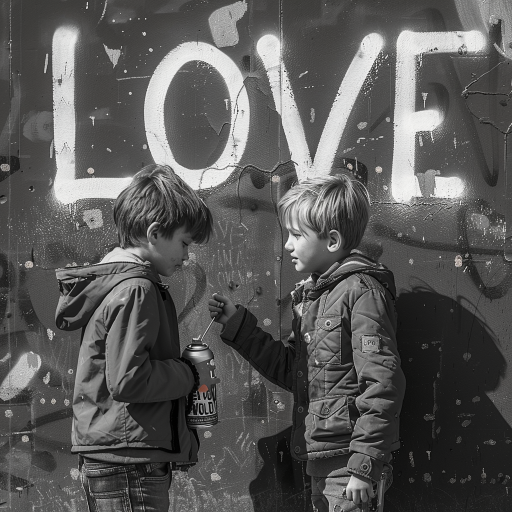Explore the Best AI Image Gallery

The New Visual Frontier: Harnessing AI Images in Marketing
Artificial intelligence (AI) is reshaping various sectors, and marketing is no exception. AI-generated images are becoming an essential part of branding, advertising campaigns, and customer engagement strategies. This blog post explores how AI is impacting the creative industry, the innovative uses of AI images in marketing, the ethical considerations that arise, and future trends to watch.
Impact on the Creative Industry
The integration of AI-generated images in marketing represents both an evolution and a revolution within the creative industry. Traditionally, artists and designers spent countless hours conceptualizing and producing visuals that resonate with target audiences. Now, AI tools can rapidly generate high-quality images based on minimal input, effectively changing the landscape of marketing creativity.
For instance, companies like DALL-E and Midjourney allow marketers to generate unique visuals that complement their campaigns, saving time and resources. This shift enables creatives to focus more on strategy and less on the laborious aspects of image creation. Moreover, marketers can experiment with various styles and themes to see what resonates best with consumers. The real-time adaptability provided by AI can often lead to more effective campaigns.
Innovative Uses of AI Images
The potential uses of AI images in marketing are manifold:
- Personalized Marketing: AI can analyze consumer behavior and preferences, generating tailored visual content that speaks directly to individual customers. This level of personalization can significantly enhance user engagement and conversion rates.
- A/B Testing: Marketers can utilize AI-generated images to create multiple variations of an ad. They can then assess performance metrics in real-time to determine which visual best captures audience interest.
- Content Creation: AI images can be used on social media, blogs, and websites, providing fresh and relevant content that keeps followers engaged. Companies can update visuals more frequently, helping maintain a dynamic online presence.
- Branding and Identity: AI-generated images allow for unique brand stories to emerge without relying solely on stock imagery. Custom visuals that reflect brand values or the essence of a service or product can be created more effectively.
Ethical Considerations
While the benefits of AI-generated images are substantial, ethical considerations must be at the forefront of any discussion surrounding their use in marketing. One pressing concern is the issue of copyright and ownership. When an AI creates an image, it raises questions about who holds the rights to that content. Is it the developer of the AI, the marketer who inputs the data, or perhaps none of the above?
Moreover, using AI-generated images may lead to a dilution of human creativity in marketing. If companies rely too heavily on AI, there is a potential risk of losing the unique human touch that often resonates more deeply with customers. Additionally, there are implications regarding representation and diversity; AI often learns from datasets that may not be inclusive or varied, leading to biased outputs.
Future Trends
The future of AI images in marketing looks promising, with several trends on the horizon:
- Increased Integration with Augmented Reality (AR): Marketers are likely to utilize AI-generated images within AR environments, offering consumers interactive experiences that blend virtual and physical worlds.
- Enhanced Collaboration Tools: Platforms are emerging that allow marketers and creatives to collaborate seamlessly with AI tools, enabling an amalgamation of human intuition and machine efficiency.
- More Accessibility: As technology continues to evolve, tools for creating AI-generated images will become more user-friendly and accessible to organizations of all sizes, democratizing the creative process.
- Focus on Sustainability: The marketing industry is becoming increasingly aware of its environmental impact. AI-generated content can help reduce waste by enabling more streamlined processes and less reliance on traditional photography methods that require physical resources.
In conclusion, AI-generated images are revolutionizing marketing, offering unprecedented creativity, efficiency, and personalization. However, with this transformation comes the responsibility to navigate ethical dilemmas and prioritize human creativity. By embracing these changes thoughtfully, brands can succeed in an increasingly digital and visual marketplace.





](https://images.ai-img.art/thumbnails/150/40e314c6a980265d2e43145d817df6c2de78540fb3b449d319fc47a9a75c65c8.webp)


](https://images.ai-img.art/thumbnails/150/7f05f32f5d38a8de9381d910b6caed58e573752cc3336fe2fddcd3284241da08.webp)

](https://images.ai-img.art/thumbnails/150/ff1c1d43f82864cd0e6eccac98f4af6deac26562f29153c1095bc00f80aed2fb.webp)




](https://images.ai-img.art/thumbnails/150/b9ffe95c383ec1a8522d40a1e2bcf7757314e46ecb4cff50f1c42291cb0dd9f8.webp)
](https://images.ai-img.art/thumbnails/150/82bc4d917a5f041064f741293d55081e3e7ff555944bcbfc6dc1f2f27fd37f45.webp)

](https://images.ai-img.art/thumbnails/150/988aa4a69efdeabd6f571e6e831eaa6f7fc403f6e453e13ed65f17e4d0c5988c.webp)

](https://images.ai-img.art/thumbnails/150/0ff66bef3cc88ad00980f6e2b342269a09f1be3416b609f6f23a05760c4b9881.webp)


